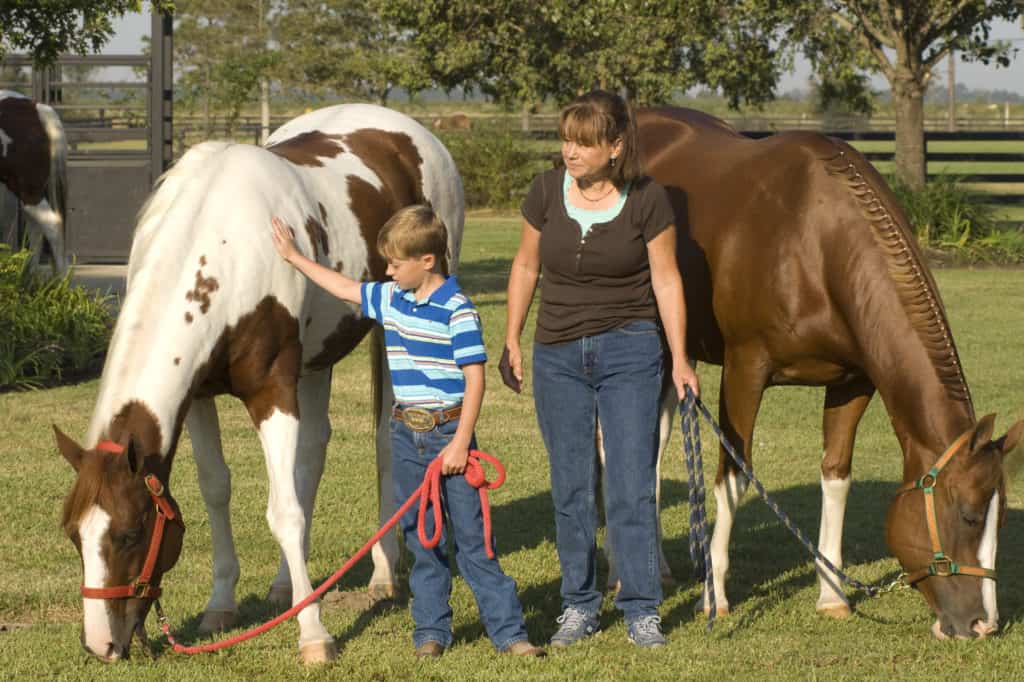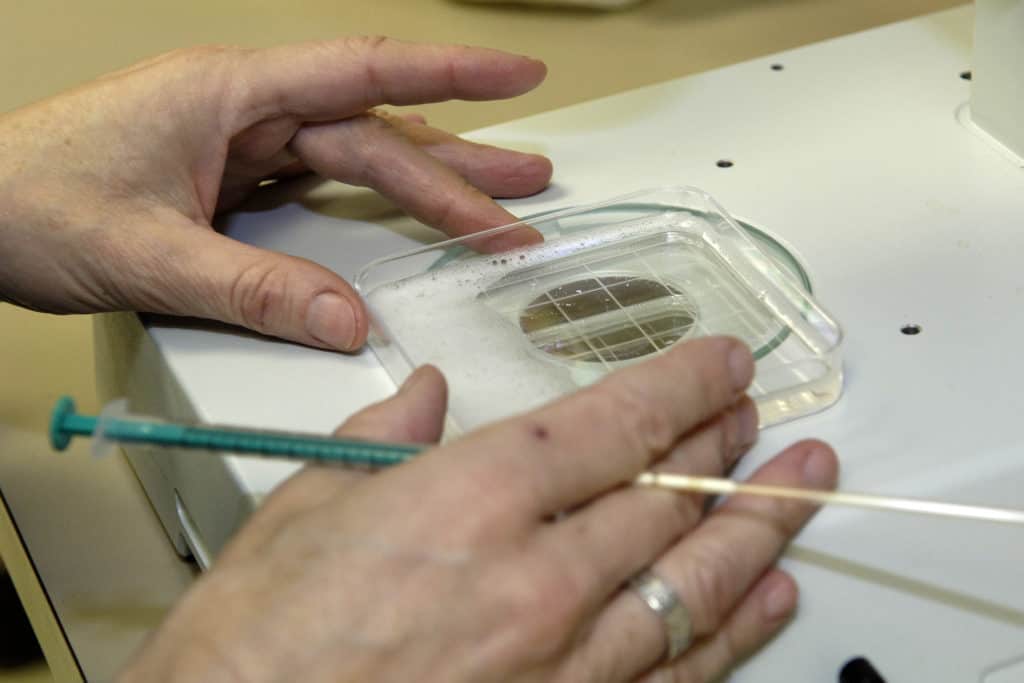Allergy, Parasite Link Investigated
Horses with allergic diseases, like recurrent airway obstruction, might have fewer parasites.
Horses with allergic diseases, like recurrent airway obstruction, might have fewer parasites.
Koko the horse appeared to be a typical mare, but when she began acting overly aggressive and trying to mount her female counterparts, her owner became suspicious.
After a barrage of tests at the University of Guelph’s Ontario Ve
Equine metabolic syndrome is a devastating disease characterized by the three main features of obesity, insulin resistance, and laminitis. Certain breeds or individual horses are predisposed to EMS, and are often referred to as “easy keepers.” These
When Paul Megson attended the 2007 Keeneland November breeding stock sale with his young daughter, Valerie, he had his eye on a particular weanling that stood out from the hundreds of other catalog entries because of one obvious reason: his pur

Dr. Ernie Bailey explains how advances in equine genetics have benefited veterinary medicine.
What was the hottest news in equine veterinary medicine in 2009? During the popular Kester News Hour session at the annual American Association of Equine Practitioners (AAEP) Convention, three top veterinarians (who focus on equine reproduction
Researchers and graduate students from the University of Kentucky’s (UK) Gluck Equine Research Center attended the annual Plant and Animal Genome Conference (PAG), held Jan. 9 through 13 in San Diego, Calif., to share equine genomic researc
Irish researchers have found that horses with a specific mutation in the gene called myostatin (MSTN) have improved athletic performance.
“A variety of mammalian species with specific MSTN variants have characteris
The world’s first foal from a biopsied and vitrified embryo transferred into a surrogate mare was born Jan. 27, 2010, at Minitube International Center for Biotechnology in Mount Horeb, Wisc. The procedure used to create the filly provides ho

Dr. Mats Troedsson of the University of Kentucky discusses a new procedure that could impact the heritability of genetic diseases. (4:17)
Four researchers from the University of Kentucky (UK) Maxwell H. Gluck Equine Research Center and a faculty member in UK’s Department of Computer Science were among 58 co-authors of a research article published Nov. 6 in Science that reported the first complete sequencing and assembly of the horse genome.
Professors Jim Mickelson, PhD, and Stephanie Valberg, DVM, PhD, of the University of Minnesota College of Veterinary Medicine are among the authors of “Genome Sequence, Comparative Analysis, and Population Genetics of the Domestic Horse,” to be published in the Nov. 6 issue of the journal Science.
Gluck Equine Research Center’s Dan Howe, PhD, has received a $500,000 grant from the USDA-CSREES Competitive Grants Program to conduct a Sarcocystis neurona genome project.
Established in 1986 as the Horse Bloodtyping Laboratory, the University of Kentucky Animal Genetic Testing and Research Lab (AGTRL) offers a number of testing services of value to practitioners, horse owners, and breed registries.
These tests will simply be one more tool a breeder can use in addition to advice from bloodstock agents and veterinarians who, in turn, use radiographs, pedigree analyses, and other tools.
James MacLeod, VMD, PhD, John S. and Elizabeth A. Knight chair and professor of veterinary science at the Maxwell H. Gluck Equine Research Center and director of UK’s Equine Initiative, was recently awarded two grants totaling more than $1.1 million over three years.
Stay on top of the most recent Horse Health news with
"*" indicates required fields